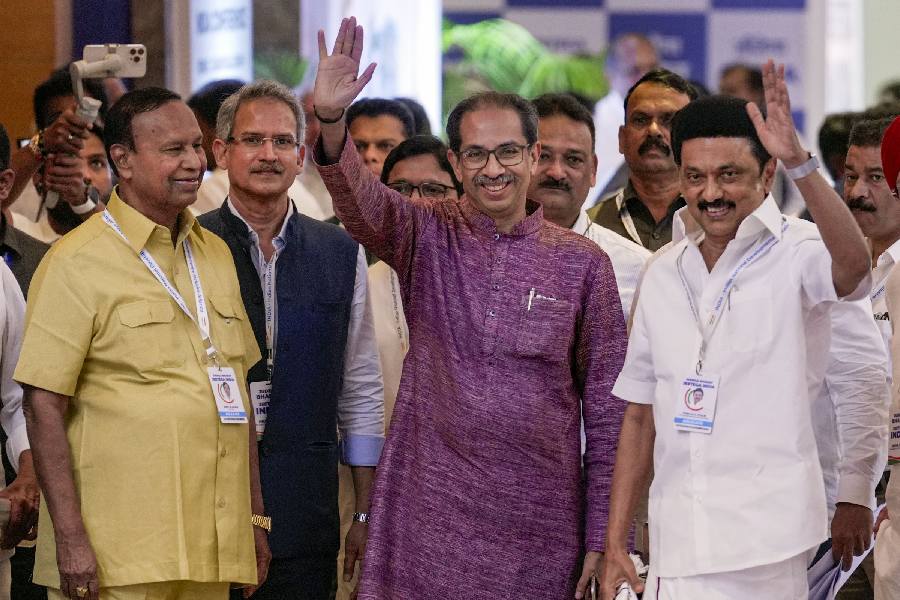The Politics of Hindi Opposition Is Hypocrisy, Not Federalism
The recent uproar over the alleged imposition of Hindi under India’s National Education Policy (NEP), especially from Tamil Nadu and now Maharashtra, has once again reignited a predictable and often politically motivated debate. But let’s ask a simple question—when did learning an additional language become a crime? Why is the idea of promoting Hindi, India’s most widely spoken language, being treated as an assault on regional identity?
Let’s be clear: no one is saying regional languages should be sidelined. India is a multilingual country and proud of it. The NEP itself supports the three-language formula—mother tongue/regional language, English, and Hindi—not to replace local languages but to empower students with national and global communication tools. What’s wrong in equipping our future citizens with linguistic versatility?
Yet, we see disproportionate resistance. Tamil Nadu’s DMK government, carrying the legacy of decades-old anti-Hindi agitations, has predictably opposed it. Joining the fray is actor-politician Kamal Haasan, a Rajya Sabha member courtesy of the DMK. But here lies the irony. This very man who decries the promotion of Hindi built a good part of his fame and fortune acting in Bollywood films. If he truly detests Hindi, why accept roles in Hindi cinema? Why enjoy the fame that came from a national platform? His criticism reeks not of conviction but convenience. He gladly cashed in on Hindi’s national reach but now plays the linguistic purist for political traction.
The hypocrisy doesn’t end there. Maharashtra is the latest to raise objections. Ironically, Mumbai is the beating heart of Bollywood—the most powerful promoter of Hindi not just in India but globally. If regional parties like Uddhav Thackeray’s Sena faction or Raj Thackeray’s MNS are so concerned about Hindi, will they demand Bollywood shift its base out of Maharashtra to Lucknow or Delhi? After all, the industry speaks, sells, and thrives in Hindi. Maharashtra’s economy benefits immensely from it. Would they bite the hand that feeds?
Let’s also not forget that even regional strongmen like Yogi Adityanath have invited Bollywood to set up shop in Uttar Pradesh, promising world-class infrastructure and safety, precisely because Maharashtra’s Marathi chauvinists have made life difficult for many in the industry. Isn’t this short-sighted linguistic jingoism hurting the state’s own long-term interests?
There’s a wider issue here. Post-independence, India was reorganized on linguistic lines to preserve and promote regional identities. That’s why states like Andhra Pradesh, Karnataka, and Tamil Nadu came into being. Telangana separated from Andhra because its dialect and cultural nuances were distinct. No one’s opposing regional pride. In fact, across states like Telangana, languages such as Telugu, Urdu, and Hindi coexist without conflict.

Yet, only in Tamil Nadu—driven by entrenched Dravidian politics—has Hindi been made a permanent villain. This resistance is not rooted in democratic principles but in an outdated identity politics that treats language as a wedge rather than a bridge.
The Modi government’s push under NEP is not to bulldoze regional languages. It is to give every Indian child access to Hindi as a link language, just like English is promoted for global communication. If 80% of Indians enjoy Bollywood and consume Hindi content, it is not because of coercion but because of choice. In contrast, regional language films—though rich in content—mostly remain confined to their own linguistic borders.
In a country that aspires to be a global power, linguistic diversity must be a strength, not a source of division. Hindi is not a threat. It is not a tool of cultural conquest. It is a practical, widely understood medium that can unite without replacing.
Opposing Hindi on flimsy political grounds not only insults the intelligence of the electorate but also undermines national integration. The spirit of federalism is not about resisting unity; it’s about ensuring diversity thrives within a united framework. Language should be a means of connection, not conflict.
Let us rise above parochial politics. Let us stop demonizing Hindi. Learning another Indian language—especially one spoken by hundreds of millions—is not an imposition. It’s empowerment. And that should be welcomed, not resisted.




